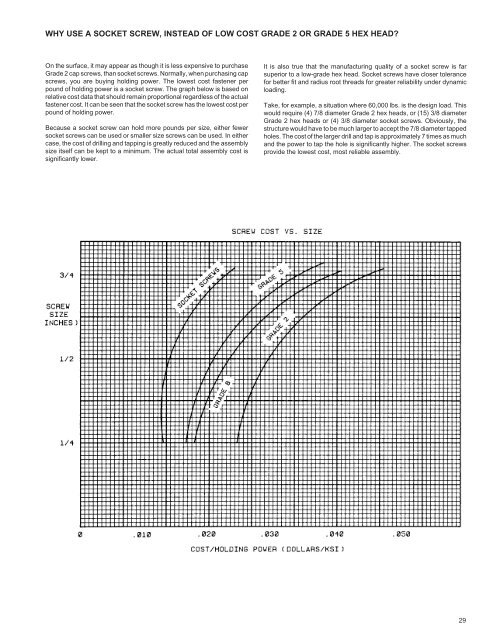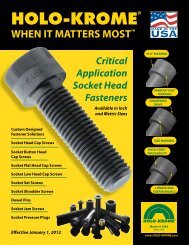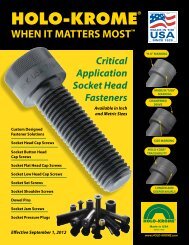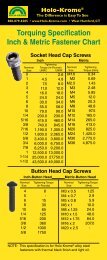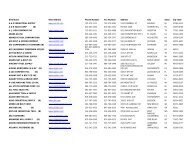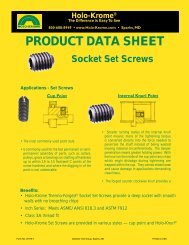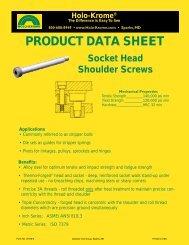Consolidated Tech Man - Holo-Krome
Consolidated Tech Man - Holo-Krome
Consolidated Tech Man - Holo-Krome
Create successful ePaper yourself
Turn your PDF publications into a flip-book with our unique Google optimized e-Paper software.
WHY USE A SOCKET SCREW, INSTEAD OF LOW COST GRADE 2 OR GRADE 5 HEX HEAD?<br />
On the surface, it may appear as though it is less expensive to purchase<br />
Grade 2 cap screws, than socket screws. Normally, when purchasing cap<br />
screws, you are buying holding power. The lowest cost fastener per<br />
pound of holding power is a socket screw. The graph below is based on<br />
relative cost data that should remain proportional regardless of the actual<br />
fastener cost. It can be seen that the socket screw has the lowest cost per<br />
pound of holding power.<br />
Because a socket screw can hold more pounds per size, either fewer<br />
socket screws can be used or smaller size screws can be used. In either<br />
case, the cost of drilling and tapping is greatly reduced and the assembly<br />
size itself can be kept to a minimum. The actual total assembly cost is<br />
significantly lower.<br />
It is also true that the manufacturing quality of a socket screw is far<br />
superior to a low-grade hex head. Socket screws have closer tolerance<br />
for better fit and radius root threads for greater reliability under dynamic<br />
loading.<br />
Take, for example, a situation where 60,000 lbs. is the design load. This<br />
would require (4) 7/8 diameter Grade 2 hex heads, or (15) 3/8 diameter<br />
Grade 2 hex heads or (4) 3/8 diameter socket screws. Obviously, the<br />
structure would have to be much larger to accept the 7/8 diameter tapped<br />
holes. The cost of the larger drill and tap is approximately 7 times as much<br />
and the power to tap the hole is significantly higher. The socket screws<br />
provide the lowest cost, most reliable assembly.<br />
29


